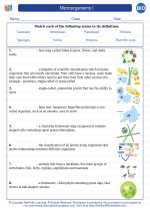Thiamine
Thiamine, also known as vitamin B1, is a water-soluble vitamin that plays a crucial role in the body's metabolism. It is essential for the breakdown of carbohydrates, as well as for the proper functioning of the heart, muscles, and nervous system.
Sources of Thiamine
Thiamine is found in a variety of foods, including whole grains, nuts, seeds, pork, fish, and fortified cereals. It can also be found in smaller amounts in fruits and vegetables.
Functions of Thiamine
- Energy metabolism: Thiamine is essential for the conversion of carbohydrates into energy. It helps in the breakdown of glucose and other sugars, providing fuel for the body.
- Nervous system function: Thiamine is important for the proper functioning of the nervous system. It plays a role in the transmission of nerve signals and helps maintain the health of the nerves.
- Heart health: Thiamine is necessary for the proper functioning of the heart muscle. It helps in the contraction and relaxation of the heart, supporting overall cardiovascular health.
Deficiency and Symptoms
A deficiency of thiamine can lead to a condition known as beriberi, which is characterized by symptoms such as fatigue, muscle weakness, nerve damage, and heart problems. Severe thiamine deficiency can also lead to Wernicke-Korsakoff syndrome, which affects the brain and can cause confusion, memory loss, and other neurological symptoms.
Recommendations
The recommended daily intake of thiamine varies by age and gender. For adults, the recommended dietary allowance (RDA) is 1.1-1.2 mg per day. Pregnant and breastfeeding women may need slightly higher amounts of thiamine.
Study Guide
.◂Biology Worksheets and Study Guides High School. Microorganisms I
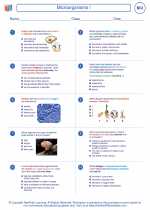
 Worksheet/Answer key
Worksheet/Answer key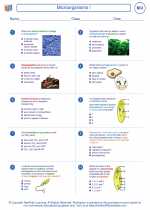
 Worksheet/Answer key
Worksheet/Answer key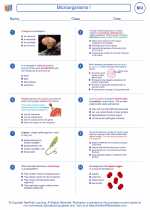
 Worksheet/Answer key
Worksheet/Answer key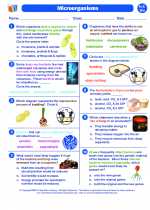
 Vocabulary/Answer key
Vocabulary/Answer key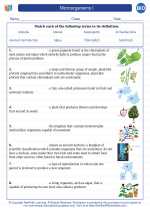
 Vocabulary/Answer key
Vocabulary/Answer key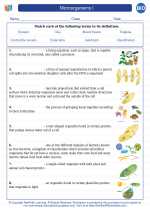
 Vocabulary/Answer key
Vocabulary/Answer key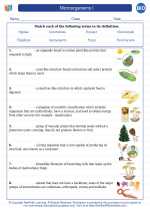
 Vocabulary/Answer key
Vocabulary/Answer key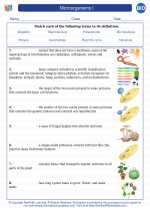
 Vocabulary/Answer key
Vocabulary/Answer key